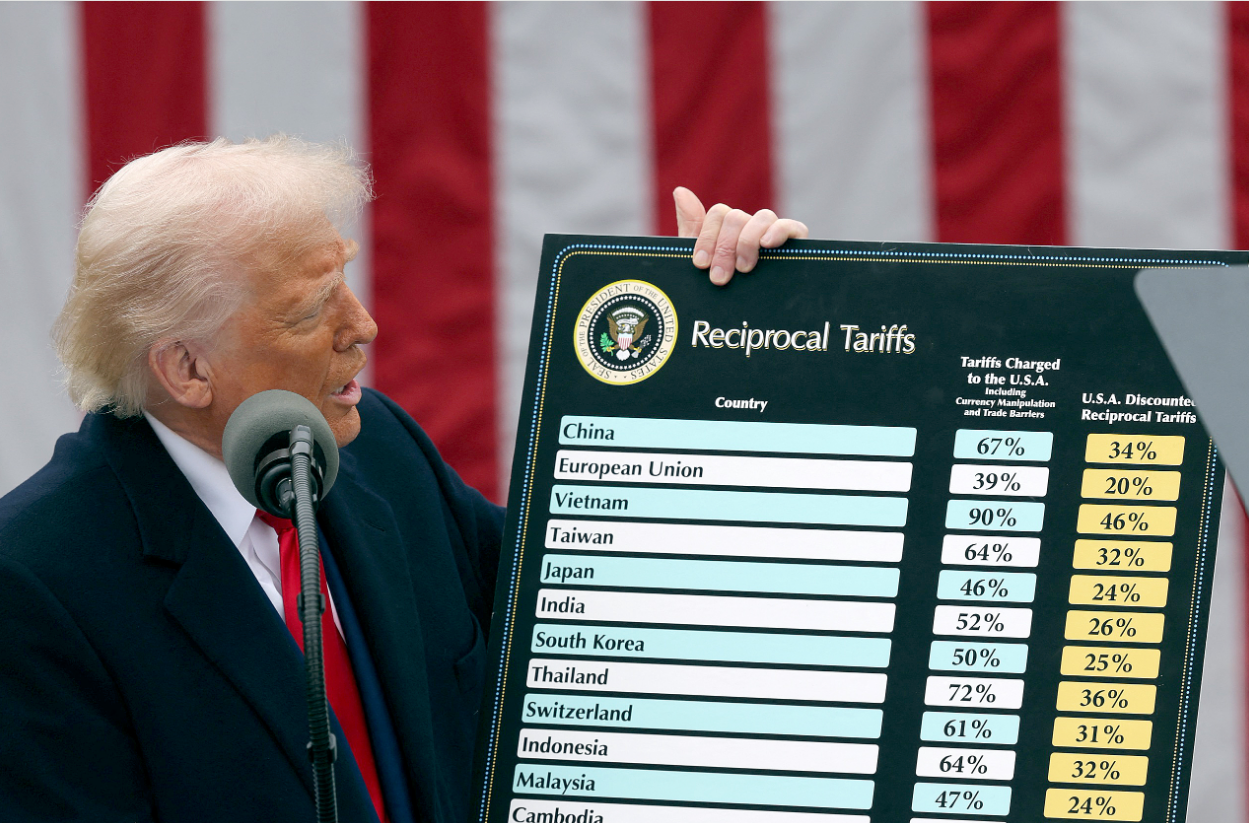Vietnam is among the countries facing steep retaliatory tariffs from the United States, with a 46-percent rate, among the highest announced by President Donald Trump during a White House Rose Garden ceremony on Wednesday (U.S. time).
“It is our declaration of economic independence,” Trump said during the announcement, held early on Thursday morning (Vietnam time).
The president held up a placard detailing the new reciprocal tariff rates for dozens of countries.
Under the plan, a base 10-percent tariff will be applied to imports from all nations beginning April 5, while the higher, country-specific retaliatory tariffs will take effect on April 9, according to Reuters.
Countries subject to the base rate include the United Kingdom, Brazil, Singapore, Australia, Chile, Argentina, and Saudi Arabia.
Other economies, including the European Union, Malaysia, Japan, South Korea, and India, will face higher tariffs ranging from 20 to 26 percent.
Vietnam and China have been placed in the highest tariff bracket, with rates of 46 percent and 34 percent, respectively.
Cambodia faces a 49-percent rate, Laos 48 percent, Madagascar 47 percent, and more.
The White House document displayed by Trump also included a rationale for the retaliatory measures, claiming they reflect existing tariffs imposed by the affected countries on U.S. goods.
According to the administration, Vietnam imposes a 90-percent tariff on American products, China 67 percent, and the EU 39 percent.
However, the U.S. did not provide detailed methodology for how these figures were determined.
In Southeast Asia, Thailand will be hit with a 36-percent tariff, allegedly reflecting its 72-percent tariff rate on U.S. imports.
Other regional nations, including Indonesia, Malaysia, the Philippines, and Singapore, are also expected to face increases, though the specifics vary.
Goods from Canada and Mexico are not currently subject to reciprocal tariffs because Trump's prior 25-percent fentanyl-related duties remain in place on their goods, along with 10 percent for Canadian energy and potash, according to Reuters.
Some goods will be excluded from the new tariffs entirely. These include copper, pharmaceuticals, semiconductors, sawn wood, gold, energy products, and certain minerals not readily available in the U.S., according to the White House.
Trump's reciprocal tariffs aim to match other countries' higher tariff rates for specific goods and compensate for non-tariff barriers that put U.S. exports at a disadvantage.
Global reaction to U.S. tariff announcement
The move has prompted strong reactions from global leaders.
In the UK, Business Secretary Jonathan Reynolds said London would remain 'calm and committed' in ongoing negotiations with Washington, expressing hope that a trade deal could minimize the damage.
President Trump noted the UK would face among the lowest tariffs under the new system, while other allies would not be spared.
On Tuesday, Italian Prime Minister Giorgia Meloni criticized the tariffs on European Union goods, warning they could provoke a trade war that would ‘weaken the West.’
Australian Prime Minister Anthony Albanese also responded on Thursday, describing the U.S. decision to impose a 10-percent tariff on Australia as ‘not the act of a friend.’
However, he ruled out retaliatory tariffs in response.
Like us on Facebook or follow us on X to get the latest news about Vietnam!

















































